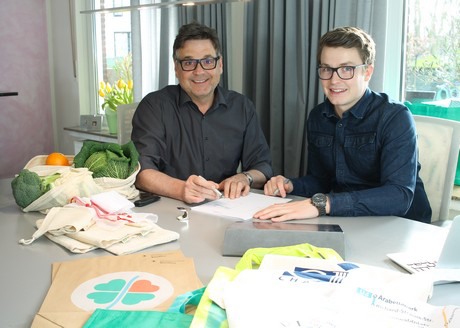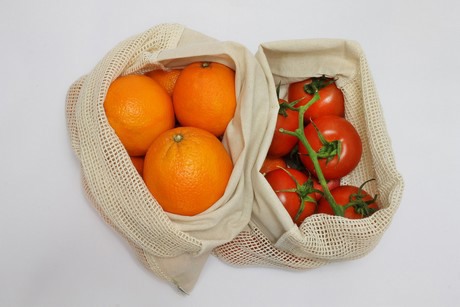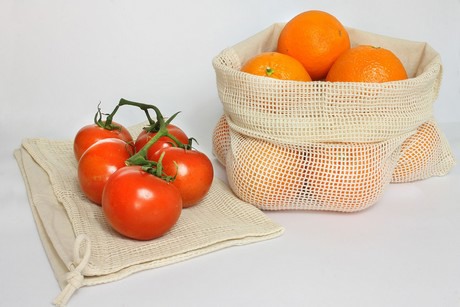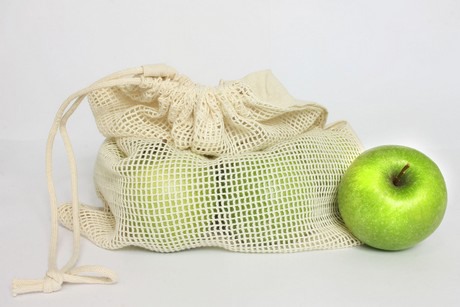Since the introduction of the new packaging law, a lot of packaging alternatives have been flooding the market. Among the new, reusable solutions, (organic) cotton is rapidly expanding in the food trade. Münster-based company Orango has also recently devoted itself to the direct import and marketing of high-quality and washable fruit and vegetable nets. And the interest is overwhelming, says Christoph Sandkötter. 
Owner Christoph Sandkötter and his son Theo, from Orango
Since 1993, Christoph Sandkötter has been active in the field of advertising material of all kinds - from bags to plush bears. The products were manufactured in the Far East (Pakistan, Bangladesh, China, India and Indonesia), after which they are transported to Germany and sold to local customers. "Before we made the move to fruits and vegetables, we already produced similar bags for Lorenz Naturals products, also made of cotton. At the end of 2018, massive requests for these fruit and vegetable bags, especially from the promotional products trade, came in. In the course of this, we have designed and manufactured the first pattern nets - both organic cotton and conventional cotton. We already had the necessary certificates for manufacturing through our manufacturers, with whom we have sometimes already been working for decades," says Sandkötter.

Satisfying sustainability needs
Until now, the nets have not been actively promoted, yet discussions with potential customers are already underway, adds Sandkötter. "We already notice that the smaller retailers can make good margins with these bags. On the other hand, the nets also meet the needs of the consumers." In any case, it is important that the nets or bags are easy to handle and re-washable. "We see a large demand for 30x40 cm and the smaller 24x36 cm types, similar to a Rewe bag."

The new packaging solution has all the necessary certifications
Trial washing
Before the actual launch, the robustness of the cotton nets was thoroughly tested, by means of extensive scrubbing in the laboratory. It was found that even after repeated washing, the nets barely lose their strength. "That was the first question from potential customers: how often can you wash the nets? I would say, based on the results, that the bags could easily be used for up to 3 years. The question is whether the consumer would do this. The organic consumer of today does not want to be identified as "eco" anymore, but he just wants to have a nice bag."

Recycled plastic nets: the third alternative
In addition to the nets made of organic and conventional cotton, there is a third sustainable alternative that is much cheaper: reusable plastic nets, made of recycled material. "At the moment, the larger chain stores are increasingly turning to these plastic nets and conventional cotton bags."

Rapid acceptance in the market
Due to today's demand and the speed of current developments, Sandkötter expects that cotton nets will soon prevail in the market. "I think the acceptance will be very fast, especially since traders can also achieve an additional margin with them. Also, the can be printed, so there is an additional opportunity for advertising."
For more information:
Orango
DESIGN MARKETING PROCUREMENT
Christoph W. Sandkötter
Am Steintor 52
48167 Münster
T: +49 2506 4177644
F: +49 2506 4177645
info@orango.info
www.orango.info
